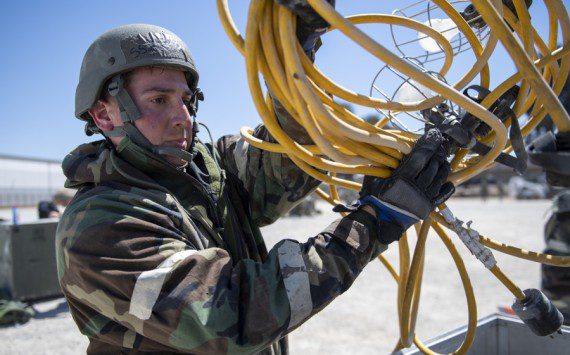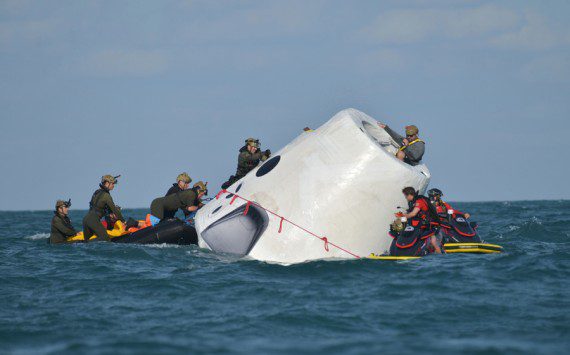U.S. imposes new Iran sanctions for ballistic missile testing
The United States Jan. 17 imposed sanctions against 11 individuals and entities involved in Iran’s ballistic missile program as a result of Tehran’s firing of a medium-range ballistic missile, a new punishment one day after the Obama administration lifted economic penalties against the Islamic Republic over its nuclear program.
The missile program “poses a significant threat to regional and global security, and it will continue to be subject to international sanctions,” said Adam J. Szubin, the Treasury’s acting undersecretary for terrorism and financial intelligence in a statement.
He said the U.S. has made it clear that it will “vigorously press sanctions against Iranian activities” outside the terms of the nuclear agreement. Szubin cited Iran’s “support for terrorism, regional destabilization, human rights abuses, and ballistic missile program.”
Also Jan. 17, Secretary of State John Kerry said in a statement that the U.S. and Iran had settled a dispute over $400 million in Iranian money dating back to before the 1979 Islamic Revolution and end of diplomatic ties. The Iranians also get $1.3 billion in interest. At issue was money used by Iran to buy military equipment from the U.S. before the break in ties between the countries.
U.N. experts said in a report in December that the missile test in October violated sanctions banning Iran from launches capable of delivering nuclear weapons. The U.S. also believes there was a November missile test.
U.S. officials have said the Treasury planned to announce the penalties in late December, but held off after Iran’s foreign minister said they could have derailed the prisoner exchange that took place this weekend. AP
N. Korea demands peace treaty for stopping nuke tests
North Korea said it could stop its nuclear tests in exchange for signing a peace treaty with the U.S. and a stop to annual military exercises between the U.S. and South Korea.
The North’s statement carried by the state media late Feb. 15 was a repeat of past offers that have been rejected by the U.S., which wants Pyongyang to commit to a complete abandonment of nuclear weapons.
An unnamed spokesman of the North’s Foreign Ministry called the purported hydrogen bomb test on Jan. 6 a justifiable move to ensure its survival against external threats.
“In response to the U.S. continuously invading our sovereignty and making threatening provocations, we will acquire ourselves with all possible nuclear attack and nuclear retaliation abilities, but will not thoughtlessly use our nuclear weapons,” the official Korean Central News Agency quoted the spokesman as saying.
The spokesman also called the South’s decision to restart anti-Pyongyang propaganda broadcasts along their tense border an “odd” provocation.
The North is extremely sensitive to outside criticism of the authoritarian leadership of Kim Jong Un and has been retaliating to Seoul’s loudspeaker campaigns by flying thousands of propaganda leaflets across the border. Earlier in the week, South Korean troops fired 20 machine gun warning shots after a North Korean drone briefly crossed the border.
The North’s H-bomb claims have been met with widespread condemnation and suspicion, but also questions on how to stop the country’s growing nuclear threat.
The Korean Peninsula remains technically at war because the 1950-53 conflict ended in an armistice, not a peace treaty.
Pyongyang has called the annual U.S.-South Korean military drills a rehearsal for an invasion, though the allies have repeatedly said that the war games are defensive in nature. AP
DOD lifts suspension of University of Phoenix
The U.S. Department of Defense has lifted its suspension of the University of Phoenix over concerns about improper use of military logos and other government inquiries.
The Jan. 15 move comes three months after the department barred the Phoenix-based school from recruiting students on its bases and from tapping new funds from a tuition assistance program for active-duty personnel.
The university maintained it was unfairly punished by the Department of Defense for unrelated, pending investigations by the Federal Trade Commission and the state of California.
U.S. Sen. John McCain, R-Ariz., called the decision to “a victory for due process and basic fairness.”
McCain says the university “has complied with all applicable laws, rules, and regulations while providing more than 80,000 service members and veterans with post-secondary degrees.” AP











